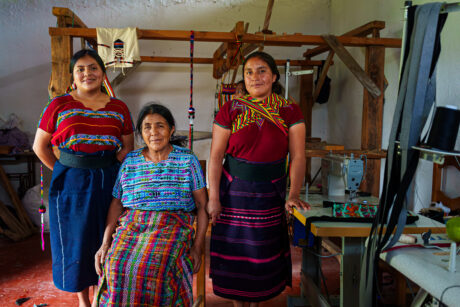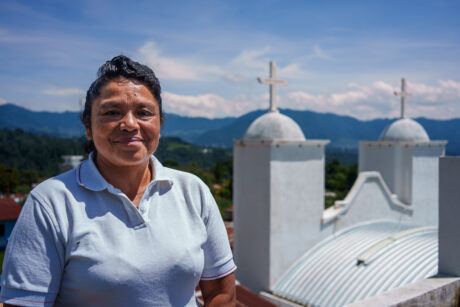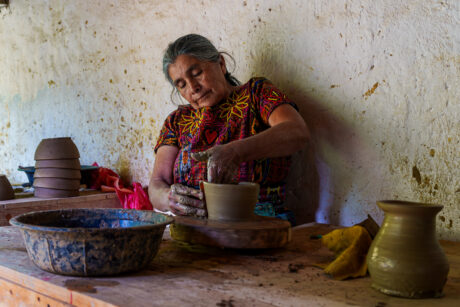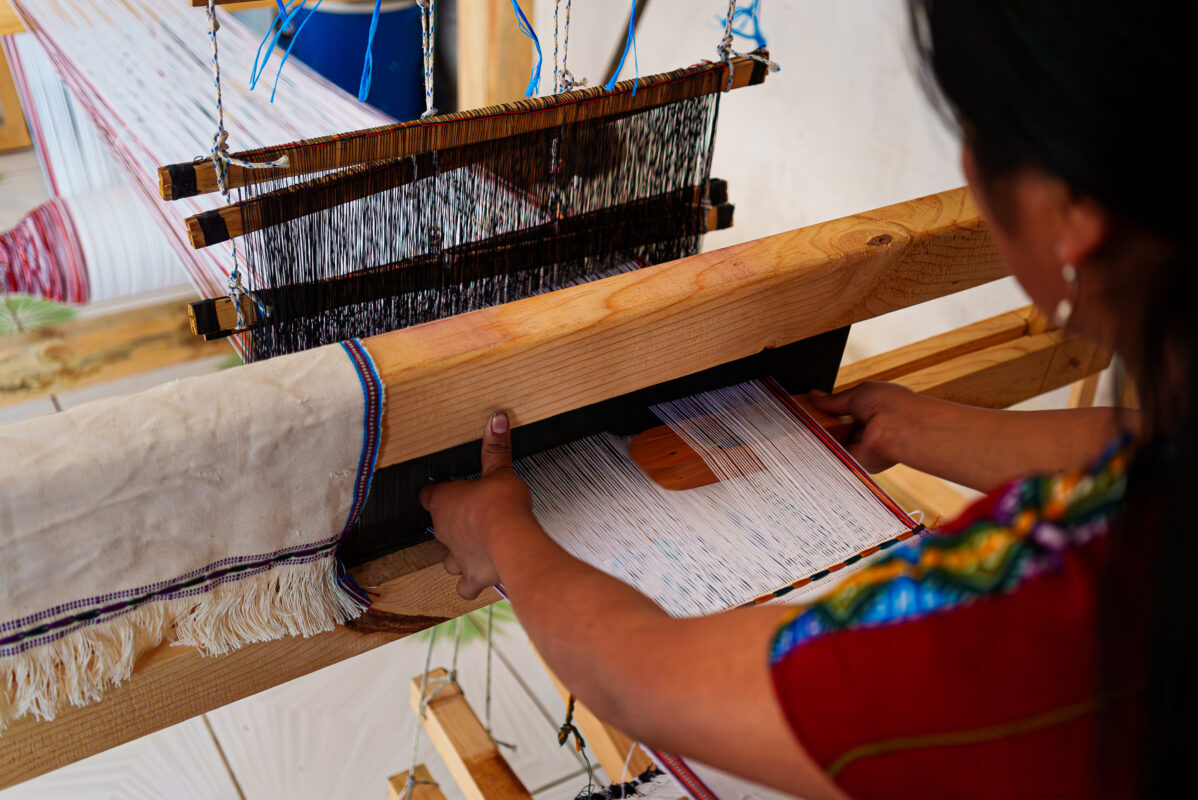Santa Cruz de Quiché, GuatemalaMaverick, 27, a university student from the Western Highlands of Guatemala, is focused on finishing his thesis so that he can graduate with a degree in Agronomy Engineering for Agricultural Production Systems. He wants to use the degree to serve his community, particularly those in rural areas facing extreme poverty and food insecurity.
Maverick’s motivations extend to a larger community in Guatemala. He is openly gay and the co-founder of a local LGBTQI+ advocacy group called Comunidad Diversa Quiché (Diverse Community Quiché, in English).
When asked what motivates him the most, Maverick responds: “To feel that I am contributing to my community and working to help others.”
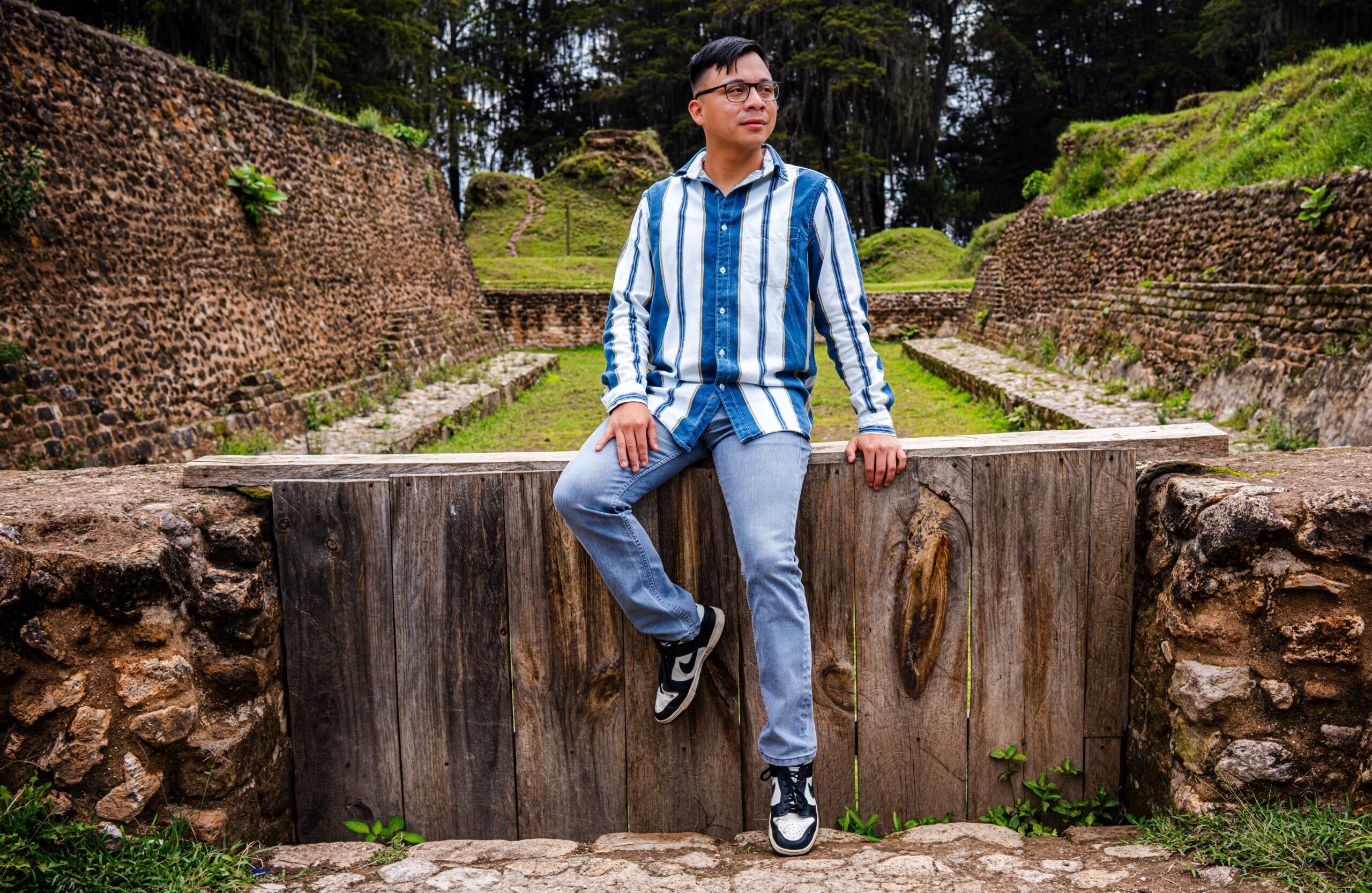
Even before launching Comunidad Diversa Quiché in 2023, Maverick always had the support of his family. Unfortunately, he could see that others who identify as LGBTQI+ don’t always have that same support.
“I am one of the few people in my community that is openly gay,” Maverick shares. “And I want my existence to have an impact, that others can see that they aren’t alone and that they belong to a community.”
Visibility in the face of discrimination and violence
To identify as LGBTQI+ in much of Guatemala results in discrimination and a lack of access to services, particularly in rural areas where there is a lack of knowledge.
“Making ourselves visible is something that is very important to us,” Maverick says. “Many believe that there are no LGBTQI+ people here. So, it is important to have these spaces, particularly within networks, to raise awareness and for people to know and understand that we exist and deserve the same rights. People need to know that they aren’t alone and that they have resources available to them.”
To address the range of complex challenges LGBTQI+ individuals face, particularly stigma, discrimination and prejudice-based violence, the USAID-supported Peacebuilding Project, or Tejiendo Paz in Spanish, partnered with Lambda, a local LGBTQI+ advocacy and human rights organization started by LGBTQI+ youth in 2010, to provide tailored support to emerging LGBTQI+ groups in the Western Highlands to strengthen their capacity to advocate for their human rights.
Tejiendo Paz works to reduce social conflict and violence and to strengthen social cohesion in the Western Highlands of Guatemala, reaching 133 communities in 15 municipalities. With USAID, Tejiendo Paz is implemented by Creative in partnership with PartnersGlobal and ProPaz.
When Maverick and his peers were starting Comunidad Diversa Quiché, Lambda approached them about receiving organizational development support, which they readily accepted.
Niray Vellafont, Lambda’s Advocacy Coordinator, has worked with Comunidad Diversa Quiché and other grassroots organizations to strengthen their advocacy skills. Vellafont, a transgender woman, emphasized the importance of providing this support through a local organization, noting that those who best know how to support LGBTQI+ individuals are those that also identify as LGBTQI+.
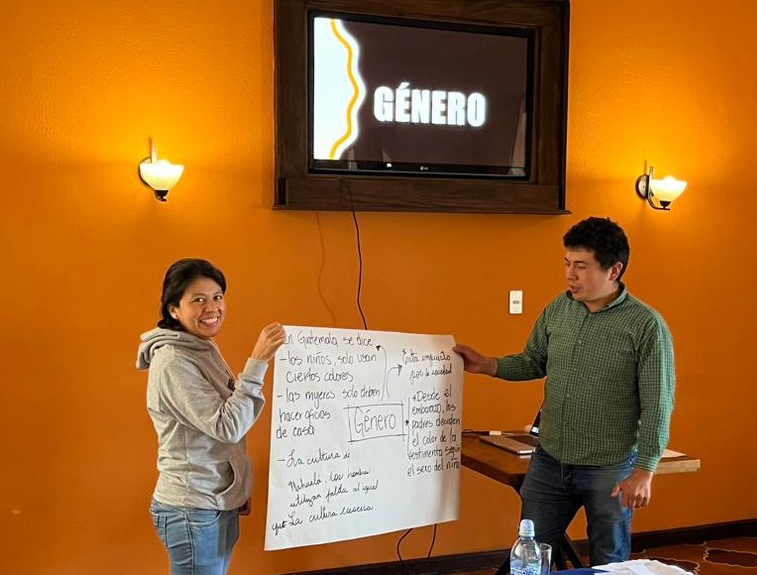
Vellafont becomes emotional when discussing Lambda’s work’s impact on emerging LGBTQI+ organizations. As an organization, they have never had the resources to work with grassroots organizations in rural areas, she says. Through this USAID-funded project, she has seen progress in the recognition of LGBTQI+ rights. She finds hope in seeing young activists from the region becoming more empowered in advocating for their rights and insisting on receiving respect and appropriate services from public institutions.
Alliance building and advocacy
Lambda offers training and resources on organizational strengthening and advocacy to grassroots groups like Comunidad Diversa Quiché. From there, they work with each organization to identify their advocacy priorities based on the local context.
Maverick turns nostalgic when he recounts Comunidad Diversa Quiché’s first Lambda-supported activity. He was worried that few people would come, given the complicated context. But they filled the room with the LGBTQI+ community—and allies who wanted to show their support for human rights.
Comunidad Diversa Quiché conducted advocacy with public institutions to ensure that reporting routes for crimes against LGBTQI+ individuals were properly understood and implemented. While many local delegates were supportive and open to learning new concepts related to sexual orientation and gender identity, it was a challenge to help them unlearn long-held beliefs that were discriminatory and based on a lack of understanding of LGBTQI+ communities.
Comunidad Diversa Quiché also established an alliance with the Comprehensive Care Unit of the Regional Public Hospital in Quiché, where Maverick once faced discrimination. In response to the incident, he took action. Through Comunidad Diversa Quiché, Maverick has worked with the hospital to ensure that others in the community receive the attention they need and deserve. Because of this alliance, health care attention and services for LGBTQI+ individuals have improved.
For Maverick, Comunidad Diversa Quiché’s biggest success has been working with public entities to better support LGBTQI+ victims of violence and discrimination.
Maverick also notes that this success wouldn’t have been possible without support from other grassroots LGBTQI+ organizations that understand their reality. Trabajando Unidos, a group from Huehuetenango, provided advice and emotional support when Comunidad Diversa Quiché started out. Vidas Paralelas, a Quetzaltenango-based organization, has facilitated psychological support to Comunidad Diversa Quiché’s membership, which has grown to 38 people.
Hope for the future
Henry España, Human Rights Ombudsman for Sexual Diversity, notes that the promotion and defense of LGBTQI+ human rights historically has taken place in Guatemala City, without a proper understanding of the realities of LGBTQI+ people in rural contexts. As a representative from a government institution, España values that new voices are being brought into advocacy spaces and believes that working with grassroots groups “is an opportunity to influence and obtain results that are more immediate and relevant to local context.”
According to Lambda’s Vellafont, Comunidad Diversa Quiché is just the start. While Lambda will continue to seek follow-on financial support, it will mentor and strengthen these nascent groups. Vellafont recognizes that there is still much work to be done, emphasizing that it is not just providing a couple of training sessions but rather is focused on long-term sustainability.
When asked where he sees the organization in five years, Maverick responds that he hopes they will have a physical space and will grow to be a stronger, more consolidated organization. He also shared that he hopes to be advocating in more spaces, particularly in public institutions where they have been rejected or told that they didn’t belong. Maverick is optimistic that the new Government of Guatemala administration will make real changes by creating safe spaces for the LGBTQI+ community and raising awareness about LGBTQI+ human rights.
When asked what he had learned from this experience, Maverick replied that “on a personal level, all of the effort is worth it.” He added, “At an organizational level, there is greater strength in unity.”
